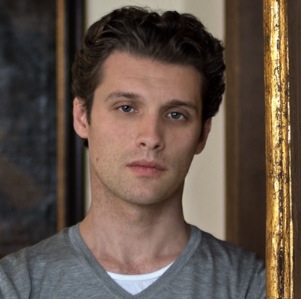非常抱歉,
你要访问的页面不存在,
非常抱歉,
你要访问的页面不存在,
非常抱歉,
你要访问的页面不存在,
验证码:

职称:Assistant Professor of French and Italian and Gender Studies
所属学校:University of Southern California
所属院系:Department of French and Italian
所属专业:French Language and Literature
联系方式:(213) 740-3170
Education Ph.D. Italian Studies, Columbia University, 2011 M.Phil. Italian Studies, Columbia University, 2008 Ph.D. Contemporary Italian Literature, University of Bologna, 2007 B.A. Philosophy, University of Bologna, 2002
Gian Maria Annovi is originally from Italy. He studied Philosophy at the University of Bologna where he graduated with a dissertation on Giacomo Leopardi and Andrea Zanzotto. He then pursued graduate research in the field of Contemporary Italian Literature under the direction of Niva Lorenzini at the University of Bologna. After studying abroad at the Universitat de Barcelona, Spain, and at the University of California Los Angeles, Gian Maria went to Columbia University to pursue a PhD in the field of Italian Studies under the direction of Paolo Valesio. In 2011, his Ph.D. dissertation on writer and filmmaker Pier Paolo Pasolini was granted the ‘P. P. Pasolini Award for Best Doctoral Dissertation’. He taught at the University of Denver from 2011 to 2013 before joining USC. Gian Maria has published a book on the relationship between de-centered subjectivity and corporeality in the poetry of prominent Italian authors such as Rosselli, Zanzotto, Sanguineti, Porta, and Pasolini. He is the editor of four volumes and the author of numerous book chapters and articles on Italian poetry, the Italian Neo-avant-garde, and Pier Paolo Pasolini. Gian Maria's main interests include twentieth century Italian literature, cinema and visual arts. He also has a strong interest in critical thought, specifically in the areas of psychoanalytic theory, cultural studies, and gender and sexuality studies. His book "Pier Paolo Pasolini: Performing Authorship" is forthcoming in 2016. Currently, he is working on a new book entitled "Late Future: Politics, Materiality, and the End of Futurism."